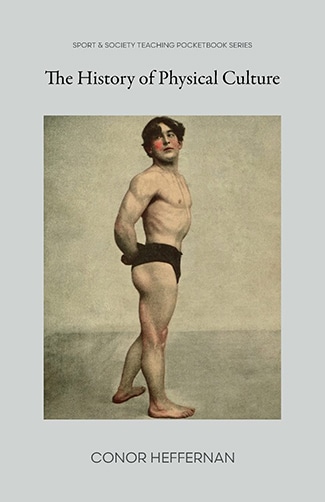¡Desconecta con la aplicación Player FM !
5,000 Years of Sweat: Lost Workout Wisdom From the History of Physical Culture
Manage episode 442769697 series 2317005
In an age that doesn't think too much about history, you might be forgiven for thinking that a culture of exercise only emerged in the 20th century. But the idea of purposefully exercising to change one's body — what folks used to call "physical culture" — likely goes back to the very beginnings of time.
Here to unpack the origins, evolution, and future of fitness is Dr. Conor Heffernan, a Lecturer in the Sociology of Sport at Ulster University and the author of The History of Physical Culture. Today on the show, Conor takes us on a fascinating and wide-ranging tour of physical culture, from the ancient Egyptians, who made their pharaohs run around a pyramid to test their fitness to rule, to the ancient Greeks who used their gymnasiums for both bodily training and intellectual philosophizing, to modern strongmen who became proto fitness influencers, and many periods and societies in between. We discuss how training practices changed over time, where they may be going next, and the evergreen principles from past eras that we could still learn from today.
Resources Related to the Podcast
- AoM Podcast #988: Of Strength and Soul — Exploring the Philosophy of Physical Fitness
- AoM Podcast #939: What Lifting Ancient Stones Can Teach You About Being a Man
- Rogue documentaries on stone lifting in Scotland, Iceland, and Spain
- AoM Podcast #39: Eugen Sandow, Victorian Strongman
- AoM Podcast #624: The Crazy, Forgotten Story of America’s First Fitness Influencer, Bernarr MacFadden
- AoM Article: An Introduction to Indian Club Training
- AoM Video: Intro to Indian Club Training
- De Arte Gymnastica
- Johann GutsMuths
- Friedrich Ludwig Jahn
- Turnvereine gymnastic system
- The Strongman Project
Connect With Conor Heffernan

1081 episodios
Manage episode 442769697 series 2317005
In an age that doesn't think too much about history, you might be forgiven for thinking that a culture of exercise only emerged in the 20th century. But the idea of purposefully exercising to change one's body — what folks used to call "physical culture" — likely goes back to the very beginnings of time.
Here to unpack the origins, evolution, and future of fitness is Dr. Conor Heffernan, a Lecturer in the Sociology of Sport at Ulster University and the author of The History of Physical Culture. Today on the show, Conor takes us on a fascinating and wide-ranging tour of physical culture, from the ancient Egyptians, who made their pharaohs run around a pyramid to test their fitness to rule, to the ancient Greeks who used their gymnasiums for both bodily training and intellectual philosophizing, to modern strongmen who became proto fitness influencers, and many periods and societies in between. We discuss how training practices changed over time, where they may be going next, and the evergreen principles from past eras that we could still learn from today.
Resources Related to the Podcast
- AoM Podcast #988: Of Strength and Soul — Exploring the Philosophy of Physical Fitness
- AoM Podcast #939: What Lifting Ancient Stones Can Teach You About Being a Man
- Rogue documentaries on stone lifting in Scotland, Iceland, and Spain
- AoM Podcast #39: Eugen Sandow, Victorian Strongman
- AoM Podcast #624: The Crazy, Forgotten Story of America’s First Fitness Influencer, Bernarr MacFadden
- AoM Article: An Introduction to Indian Club Training
- AoM Video: Intro to Indian Club Training
- De Arte Gymnastica
- Johann GutsMuths
- Friedrich Ludwig Jahn
- Turnvereine gymnastic system
- The Strongman Project
Connect With Conor Heffernan

1081 episodios
Todos los episodios
×Bienvenido a Player FM!
Player FM está escaneando la web en busca de podcasts de alta calidad para que los disfrutes en este momento. Es la mejor aplicación de podcast y funciona en Android, iPhone y la web. Regístrate para sincronizar suscripciones a través de dispositivos.




